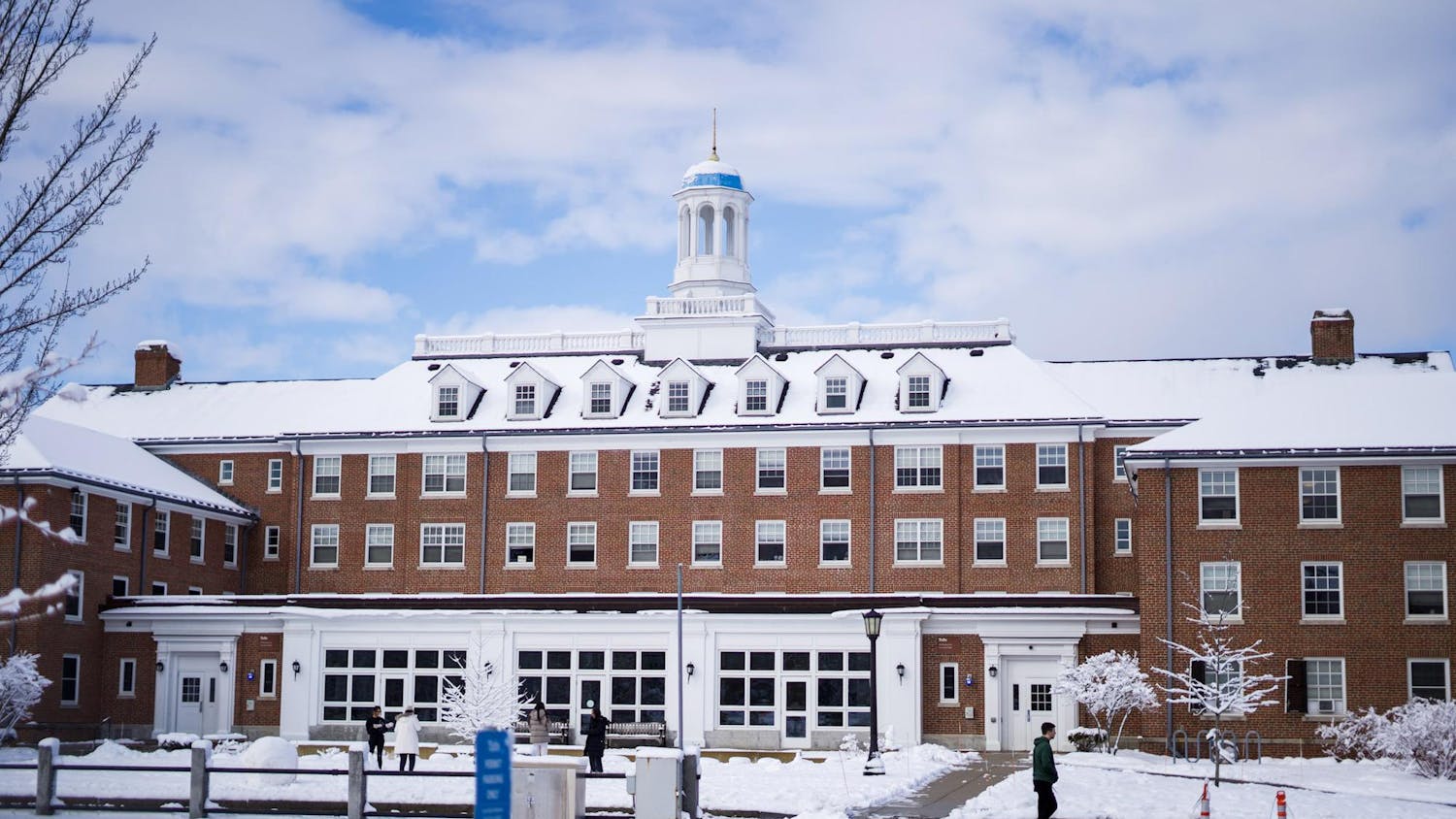Due to budget challenges at the university level, administrators and deans of the Schools of Arts and Sciences and the School of Engineering have instructed faculty to prepare for budget cutting measures that will aim to address financial challenges forecasted in the fiscal year ahead.
Department heads were told in a February meeting that while A&S and the university as a whole are expected to be in a minor budget surplus next year, there is pressure on the university to bolster that surplus in order to support investments in infrastructure and the endowment.
“While the university’s overall financial situation is healthy, we are facing some near-term challenges, as many colleges and universities are,” Patrick Collins, executive director of media relations, wrote in a statement to the Daily.
Collins wrote that there has been “a softening in the market for graduate education.” Decreased nationwide demand for residential master’s programs comes at a time when demand for Ph.D. programs, an expenditure, is increasing. Undergraduate enrollment remains stable, and while total student charges will be increasing by 4.4% from FY2024 to FY2025, this increase is on track with the average annual increase for peer colleges and universities.
In the same statement, Collins also cited “a tightening labor market increasing competition for faculty and staff.” Increased expenses in healthcare benefits and wages also raise university expenses.
Finally, inflation of the cost of goods and services is also a factor in budget considerations, particularly the cost of construction services, which typically inflates at around twice the rate of consumer goods.
In response to these fiscal concerns, the administration has instructed the AS&E schools to prepare for belt-tightening measures. Silke Forbes, a professor of economics, said that the administration has described these measures as cautionary rather than in response to an emergency situation.
“As faculty and staff we received an email from the president and the provost outlining the austerity situation,” said Forbes, who is a member of the Budget and Priorities Committee but on a one-year sabbatical. “[We] were told that this will directly impact compensation. So, the intended merit raises that we usually receive year over year will be lower than planned. Not dramatically lower, but lower. … That’s the only concrete thing I’ve received.”
Some departments have already felt the effects of the university’s budget cuts: In May, nine employees in Tufts Technology Services were laid off.
“In response to the financial challenges facing colleges and universities nationwide, including Tufts, the university’s leadership asked all schools and units to identify revenue enhancements and expense reductions to improve the budget situation,” Collins wrote in a statement. “TTS does not expect any of these changes to impact its core functions or to adversely effect the classroom experience, which is our highest priority,”
James Glaser, dean of the School of Arts and Sciences, and Kyongbum Lee, dean of the School of Engineering, told the Daily that faculty are accustomed to budgetary ebbs and flows and that generally salaries are not on the chopping block.
“Departments and faculty may feel some of the measures but the schools’ leadership will protect certain areas like faculty compensation and student-faculty ratios,” Glaser and Lee wrote in a joint statement.
The rest of the specific budget cuts have yet to be announced, though faculty have been given a general idea of what measures are being considered. Glaser and Lee told the Daily that excessively small class sizes will be reevaluated.
“Really small courses are not efficient,” they wrote. “We do expect classes to meet certain thresholds as we try to maximize our resources and offer the broadest curriculum possible. This is not new and has been our policy for some time. Cancelling very small courses also allows us to invest in areas where there is greater student interest.”
There will also likely be cuts to the facilities budget, which concerns buildings, furniture and equipment, as well as reduced funding for extra expenditures such as food at events.
“Often what happens is that capital spending, so investments, are drawn out over time,” Forbes said. “There are a lot of buildings on the quad that are old and they’re scheduled for renovations and upgrades, and I assume, that’s my speculation, that that will slow down.”
Forbes, Glaser and Lee all said that students will likely not notice the impact of budget cutting measures in any significant way. Additionally, according to James Hurley, vice president for finance and treasurer, undergraduate financial aid will not be affected.
“There shouldn’t be a dramatic impact,” Forbes said. “We’re not going to shut things down.”
“There’s a general understanding that our two schools are stronger because we’re part of a larger constellation,” Glaser and Lee wrote to the Daily. “That said, faculty are concerned about any potential erosion in the quality of education or any potential loss of ground in our research profile. An extended period of austerity is more likely to draw out those concerns.”






